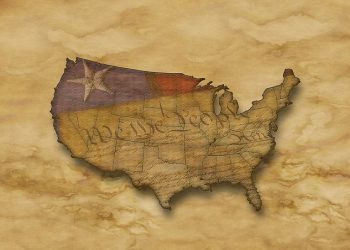How far will debt collectors go to recover money that is owed?
Are you behind on payments? Do you owe money and are tired of debt collectors trying to contact you? Debt collectors are becoming wiser and using social media to contact those who owe them money. You may be saying: “Isn’t that illegal?” But think again, debt collectors can and do use the Internet to find people and try to collect. What you make public, remains public and is not off limits. This does not mean that it opens the door for debt collectors to violate the law, it just makes it easier for them to find you, know what you are doing, and take notes. The Federal Trade Commission enforces the Fair Debt Collection Practices Act (FDCPA) which prohibits debt collectors from using abusive, unfair, or deceptive practices to collect on a debt.
Under the Federal Fair Debt Collection Practices Act a debt collector can not contact you at inconvenient times (before 8:00am or after 9:00pm) or places (at work if they are on notice that you may not take calls). Further, a debt collector may contact another person but only once and for the limited reason of obtaining your phone number, address, or place of business.
As social media grows, we continue to hear the warnings for purposes of employment and crimes, but now we also have to be cautious of debt collectors that are preying upon posts and friends on people’s media pages. One Florida woman is suing MarkOne Financial after they began harassing her family and friends on her Facebook account, specifically they were continually contacting her loved ones and asking them to have her call them. Yes, it is not off limits for MarkOne to contact others to find a debtor, but this was different. Melanie Beacham, owed MarkOne Financial a $362 car payment, according to reports they called and called, sent e-mail and text messages, and then began using Facebook to contact her family and friends. Beacham states that before MarkOne began using Facebook to contact her, she had already come to an agreed payment plan on the debt and there was no reason for them to use such means when they knew her address, phone number, place of business, and e-mail address. “It was very disturbing. It was hurtful. It was just horrible,” she says. The lawsuit is still pending, but just last month the court ordered MarkOne to stop contacting Beacham and anyone related to her. The order does not mean a victory, but in the eyes of Beacham’s attorney it certainly is. He says that this is the first time a judge has specifically banned a debt collector from using social media.
Twenty years ago, debt collection companies had to rely on expensive tracing and search providers to find debtors who have disappeared. Today people make it so easy with Google and other search engines to open up your browser and find almost anyone in the world and many things about them; why would debt collectors not take advantage? Well they have and it opens the door for abusive debt collectors to prey upon people in the real world and the virtual world.
How do you protect yourself? Make sure your networking sights are set to the maximum privacy levels and do not accept friends that you don’t know. This will at least make you a harder target for abusive debt collectors who don’t know when to stop. And keep in mind that if you are being harassed by threats, having your name published as someone who refuses to pay a debt, use of profane language or even repeated phone calls, you have the right to sue in state or federal court within one year from the date the law was violated. Even better, if you win the judge can require that the debt collector pay you if you can prove you suffered damages. If not, the judge can still order them to pay you up to $1000. But it remains, that a debt is a debt and even though a debt collector violates the FDCPA in trying to collect, the debt will still be owed.
Changes will come soon, on April 28, 2011 the Federal Trade Commission will host a public workshop in Washington D.C., Debt Collection 2.0, which will focus on the new technologies of debt collection. The FDCPA was written in 1977 when e-mail, social networking, and text messages did not exist. The law must be updated in order to deal with the way communications have progressed through the years.


 نیازمندیها
نیازمندیها





















